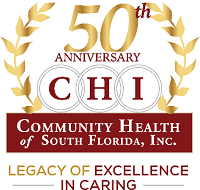Turning patients into consumers, changing reimbursement incentives, and deploying video and mobile technologies are forces for innovation in the U.S. health care system. But federal regulatory challenges, state-by-state licensing and the conservative tendencies of leading players mean that sweeping changes won’t happen overnight. These were some of the insights shared by health care industry leaders with more than 700 attendees at “The Business of Health Care: Disruptive Technology, Access and Efficiency,” the fourth in a series of premier health care impact conferences hosted by the University of Miami School of Business Administration annually.
 One of the highlights of the conference, presented by Florida Blue on March 23, was University of Miami President Donna Shalala’s conversation on "Health System Innovation" with Patrick M. Conway, M.D., deputy administrator for innovation and quality and chief medical officer (CMO) at the Centers for Medicare & Medicaid Innovation within the U.S. Department of Health and Human Services.
One of the highlights of the conference, presented by Florida Blue on March 23, was University of Miami President Donna Shalala’s conversation on "Health System Innovation" with Patrick M. Conway, M.D., deputy administrator for innovation and quality and chief medical officer (CMO) at the Centers for Medicare & Medicaid Innovation within the U.S. Department of Health and Human Services."We are shifting our incentives to focus on better health care outcomes and lower costs," said Conway, noting the shift from traditional fee-for-service to alternative payment models. "We support innovations in delivering care to the American people." He cited the example of SAMA Healthcare Services, a small family practice in rural Arkansas that is using electronic health records (EHRs) and mobile applications to reach patients more effectively. "We provided $1 million in incentives, and the practice was able to lower costs by $3 million," he said.
In the morning keynote session, Jason Hwang, M.D., a leading expert in disruptive technology in health care and co-author of "The Innovator’s Prescription: A Disruptive Solution for Healthcare," said the computer industry’s evolution from mainframes to mini-computers to PCs and laptops provides a model of what may happen in health care.
"A highly centralized industry, dominated by experts, gradually decentralized as new entrants introduced disruptive technologies based on different business models," he said. "In health care, the hospital is our mainframe. The big question is how do we decentralize health care, make it more accessible and empower patients to do more for themselves?"
Richard L. Clarke, chair of the board of directors of CHRISTUS Health and former president & CEO of the Healthcare Financial Management Association, moderated a panel discussion on “Business Opportunities in Disruptive Health Care Technology.” During the session, Damian Gilbert, founder and CEO, TouchCare, explained how physicians are using his "freemium" mobile application for secure video connections with patients.
Decentralization of services was a key theme for David Barash, M.D., executive director, Global Health Portfolio, and CMO at the GE Foundation, which funds health care initiatives like Project ECHO which connects specialists with primary-care practices in local communities through videoconferencing. "In New Mexico – a state with one hepatologist and 12,000 liver patients – we are teaching nurses to manage patients with hepatitis C," he said.
C. Justin Walter, managing director of the Global Health Care Group at Bank of America Merrill Lynch, said there were more than 80 initial public offerings (IPOs) by health care companies last year, and the pace may be picking up in 2015. "The capital markets are wide open for business," he said. "Investors have a real appetite for putting dollars to work in this space."
In the afternoon keynote session, Patrick Geraghty, chairman and CEO of GuideWell and Florida Blue, moderated a discussion on "Access and Efficiency" with Gregory D. Wasson, who recently retired as president and CEO of Walgreens Boots Alliance, after 35 years at Walgreens. "We have to improve accessibility, and believe that nurses and pharmacies should have a bigger role in the system," said Geraghty.
After successfully growing Walgreens stores throughout the country, Wasson said, "We decided to reinvent the front end of the business. Today, our retail centers provide consumers with front-line services at convenient locations. The model is here to stay, but what services are provided is still evolving."
Norma Kenyon, chief innovation officer for the University of Miami Miller School of Medicine, moderated the day’s last panel discussion, which focused on big data, consumer behavior, and new business models.
"We have to teach patients to be consumers," said Jon R. Cohen, M.D., senior vice president, CMO, and group executive –Diagnostic Solutions, Quest Diagnostics. "People spend far more time researching a new TV than cardiac surgery." He added that patients with high-deductible insurance plans – now estimated at 40 percent of the market – are putting off visits to a doctor or hospital. "They are not getting screened or filling their prescriptions," he said. "We need to change that paradigm or they will be worse off than before."
Molly Muldoon, chief administrative officer, My Own Med LLC, and principal, GMM Health Strategies, agreed with Cohen on the need for educating consumers to help them take more control over their own care. She added, "Healthcare is a team sport involving family members and caregivers as well as patients. We need to bring everyone into the game in a coordinated manner."
While doctors will still be needed for medical procedures and complex cases, advanced software applications will allow consumers to get personalized information for themselves, said Peter Tippett, M.D., vice president, Verizon Innovation Incubator, and CMO, Verizon Enterprise Solutions. "I can see health care moving to the travel agency model, where there is no specialist involved in most of the transactions."
"With attendees from Canada, Latin America and Europe, this has truly become a global conference," said Steven G. Ullmann, professor and director of programs in and Center for Health Sector Management and Policy at the School of Business. "The high caliber of our presenters reflects the importance of our conference, and we are already planning our fifth annual forum for next year."
"The conference provides rich insights into complex health policy issues that are relevant in the United States and across borders," said Jillian Kohler, director of global health, Leslie Dan Faculty of Pharmacy and Munk School of Global Affairs at the University of Toronto. "We get important access to the pulse of issues which are driving health care public policy today."
Hans B. Anderson, director – healthcare practice at Synechron, a global IT consulting and technical services company, said, "One of the best things about this forum is that it brings together the government, payers, vendors and providers. It’s important to hear perspectives from all the players on the issues affecting the future of health care."



























